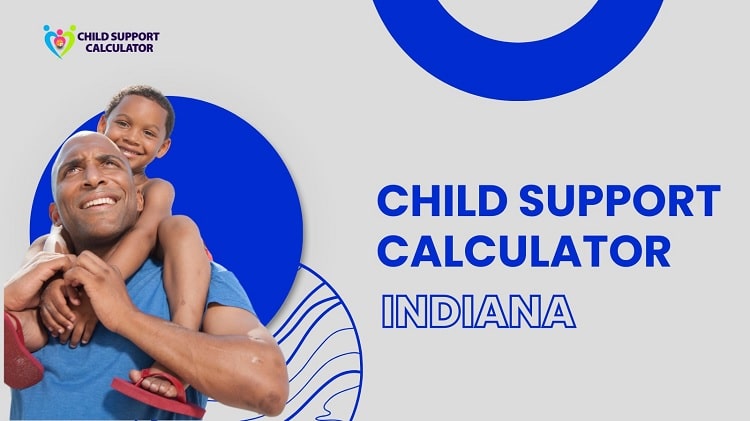Alimony In Virginia
When a couple divorces, alimony, also known as spousal support or maintenance and support, is awarded as a series of payments to a financially dependent spouse. The article will explain to you about the alimony in Virginia.
Alimony was once seen to be a continuance of a husband’s commitment to supporting his wife, but the law now stipulates that it can be granted to either the husband or the wife, depending on each spouse’s ability to pay for his or her own needs and the other spouse’s ability to provide for them. In actuality, husbands are much less likely to get alimony payments from their spouses.

Because the legal guidelines are general norms that must be applied to the facts of each unique case, determining the amount of alimony to be awarded to a spouse may be a stressful and confusing process.
Money is frequently used as a primary weapon between divorcing spouses. One of the most difficult and unknown aspects of divorce is determining if alimony will be given, how much will be paid, and for how long, and then reaching an arrangement with your spouse.
Divorce can be difficult, especially if you’re afraid of not being able to make ends meet without your spouse’s salary. Fortunately, judges in VA can give dependent spouses spousal support and maintenance (alimony) during the divorce process and, if necessary, for a period after the divorce is finalized.
Spousal Support In Virginia
Spousal support is a payment made by one spouse to the other throughout the divorce process and, if necessary, for a period after the divorce is finalized under alimony in Virginia. Spousal assistance is intended to ensure that both spouses can meet their financial commitments while maintaining a lifestyle that is as close to the marital lifestyle as possible.
Divorcing Virginians may, as a first step, establish a marriage settlement agreement that includes a provision agreeing to the parameters of an alimony award. If this does not occur, a judge will have to decide whether alimony is appropriate and how much it should be paid.
In VA, alimony can be paid in monthly installments, with a defined end date or forever, in a lump sum, or a mix of these. A court order might also reserve the right to future alimony until a specific date.
The court must consider a long list of specific factors related to finances and assets, marital standard of living, length of the marriage, ages and health of spouses and children, family circumstances, financial and non monetary contributions to family “well-being,” earning capacity and job opportunity, contribution to the other spouse’s career, tax ramifications, and others when determining the features, amount, and length of a spousal support award.
Except in situations where express language banning appears in a settlement agreement, there are procedures for amending spousal maintenance awards “as the circumstances may make proper.”
The obligation ends when either ex-spouse dies, the recipient remarries, or the recipient cohabitates with another partner in some cases.
Types Of Spousal Support
Temporary support while the divorce is underway, as well as post-divorce temporary or permanent support, can be awarded by VA judges. Spouses who require financial assistance from a soon-to-be-ex-spouse while the divorce case is pending in court are eligible for temporary support. While waiting for the final verdict, the judge will order an amount that will allow the recipient spouse to make ends meet.
A judge may give rehabilitative or permanent alimony to a spouse who needs financial assistance after the divorce. In families where one spouse left a job to raise a family or support the other spouse’s career, rehabilitative therapy is prevalent.
The goal of rehabilitative support is to give the recipient spouse the time and money they need to get the education or job training they need to find work that will allow them to become financially self-sufficient.
Permanent support is uncommon, although it is offered in Virginia for spouses who, despite their best efforts, are unable to become self-sufficient due to disability, age, or unemployment.
Qualification For Spousal Support
You must request spousal support during the divorce proceedings if you require it. Contrary to common assumption, the court does not discriminate between men and women when determining spousal support. Thus either spouse can apply for it. However, both spouses must demonstrate a financial need before the court can grant support.
When determining the kind, amount, and duration of any spousal support award, judges will consider the following factors:
- Obligations, needs, and financial resources of each spouse (including income from a pension, profit-sharing, and retirement).
- The standard of living of the couple.
- The duration of the union.
- Age and physical and mental health of each spouse.
- The amount to which a child’s age, physical or mental condition, or special circumstances make working outside the home problematic for the supported spouse.
- Each spouse’s monetary and nonmonetary contributions to the family’s well-being
- Each spouse’s property interests, including real and personal property, are considered in the marital property division during the divorce.
- The income potential of each spouse.
- The supported spouse’s ability and willingness to obtain education or job skills, as well as the expense and time involved in doing so.
- Whether the decision impacted the supported spouse’s future income-generating potential and length of time away from the work market if the couples agreed throughout the marriage that the supported spouse would leave a career to serve the family interests.
- Whether one spouse helped the other with their schooling, training, or job.
- Support has tax implications for both spouses.
- Any additional considerations the court deems important in the support case.
Judges in Virginia must also evaluate whether either spouse engaged in marital wrongdoing during the marriage, such as infidelity. If the court finds the asking spouse guilty, spousal support will be denied.
It’s worth noting, however, that the court may award spousal support to a guilty spouse if not doing so would put the couple in financial trouble.
Unlike child support, judges do not utilize a formula to determine the amount of support due in each case. Judges, on the other hand, have a lot of leeways when it comes to weighing the above elements.
Couples who desire to have more control over the outcome of a support award can discuss the parameters and propose a settlement agreement to the judge for approval.
Duration of Spousal Support
If the judge orders temporary support while the divorce is underway, the order will be terminated after the divorce is finalized.
Rehabilitative, or temporary post-divorce support, is usually only provided for a brief period of time and ends on a date set by the judge. The court may also establish a future event as the end date, such as the completion of a degree program. If the supported spouse requires assistance beyond the expiration date, the judge can reconsider the order for a possible extension.
Unless the court directs differently, permanent support is indefinite.
If the supported spouse remarries (or cohabitates), the court will automatically terminate the award, regardless of the form of support in your instance. If one of the spouses dies, the situation is usually the same.
Payment Methods of Support in VA
To pay for spousal support, judges can impose periodic payments (typically monthly), lump-sum payments, or property transfers. If you’re concerned that your spouse won’t pay, you can ask the court to issue an income deduction order, which instructs your spouse’s employer to withdraw the support amount from the employee’s salary and pay it to the support recipient.
Failure to obey a court order is a serious offense that can result in the court imposing penalties or court costs, confiscating your tax returns, or sending you to prison.
Modification Of Spousal Support
Possibly. Unless the court orders differently, any spouse can request a modification of support if the other spouse shows a major change in circumstances that neither spouse anticipated or considered when the court made the initial order. Once either spouse achieves full retirement age, the court will evaluate all spousal support cases for possible adjustment.
Tax And Virginia divorce laws alimony
It is debatable. If your divorce was finalized on or before December 31, 2018, the paying spouse could deduct the payments, but the recipient must pay taxes on the income. However, if your support award was finalized or changed after December 31, 2018, new tax laws eliminated the tax-deduction advantage and reporting obligations for alimony in Virginia.
Faqs
Is there alimony in Virginia?
Spousal support is only provided to a spouse in Virginia when it is absolutely necessary. The court considers the events and circumstances that contributed to the dissolution of the marriage, including grounds such as adultery while considering whether or not to grant support to a spouse.
What is alimony in Virginia?
When a couple divorces, alimony, also known as spousal support or maintenance and support, is awarded as a series of payments to a financially dependent spouse.
How much is alimony in Virginia?
The formula is as follows:
(a) 30% of the payor’s gross income is less than 50% of the payee’s gross income in the circumstances with no minor children.
(b) In circumstances where the parties have minor children in common, 28 percent of the payor’s gross income is less than 58 percent of the payee’s gross income.
How is alimony determined in Virginia?
If the wife does not work, the court will determine the amount of alimony based on her age, educational qualifications, and ability to work. If the husband is incapacitated and unable to work while the wife is working, the court will award the husband alimony.
How long does a man pay alimony in Virginia?
A judge in Virginia family court determines the length of the payments. Alimony is normally calculated based on the length of the marriage; for example, one year of alimony is paid for every three years of marriage (however, this is not always the case in every state or with every judge).







